News
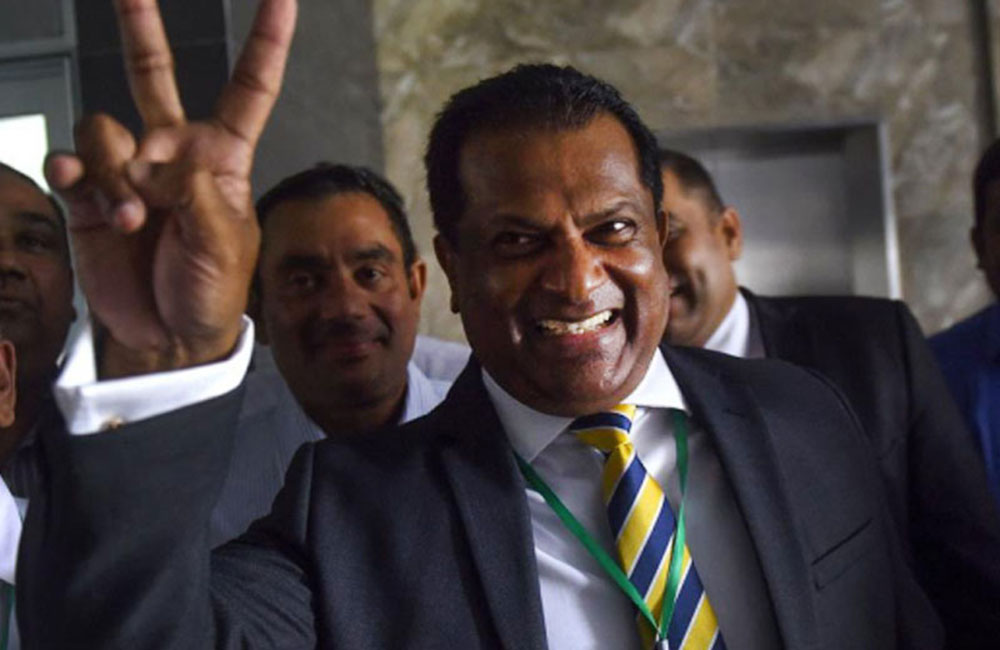
Shammi Silva elected as SLC President
Shammi Silva has secured another term as the President of Sri Lanka Cricket (SLC).
He was elected uncontested for the period 2023-2025. Silva’s election marks his third term in office as the President of SLC, and the 2nd time, being elected uncontested.
The 62nd Annual General Meeting (AGM) of the national cricket board is taking place today (May 20) at the JAIC Hilton in Colombo.
During the AGM, the elections conducted by the ‘SLC Elections Committee’ are held to elect the new office bearers for the period 2023-2025.
The AGM commenced at 10:00 a.m. with the participation of the stakeholders of the cricket board.
Following the completion of the AGM, the national cricket board will also convene a media briefing.
The SLC elections come in the backdrop of the International Cricket Council (ICC) probe into Sports Minister Roshan Ranasinghe’s political interference, following a complaint filed by the SLC officials with the ICC.
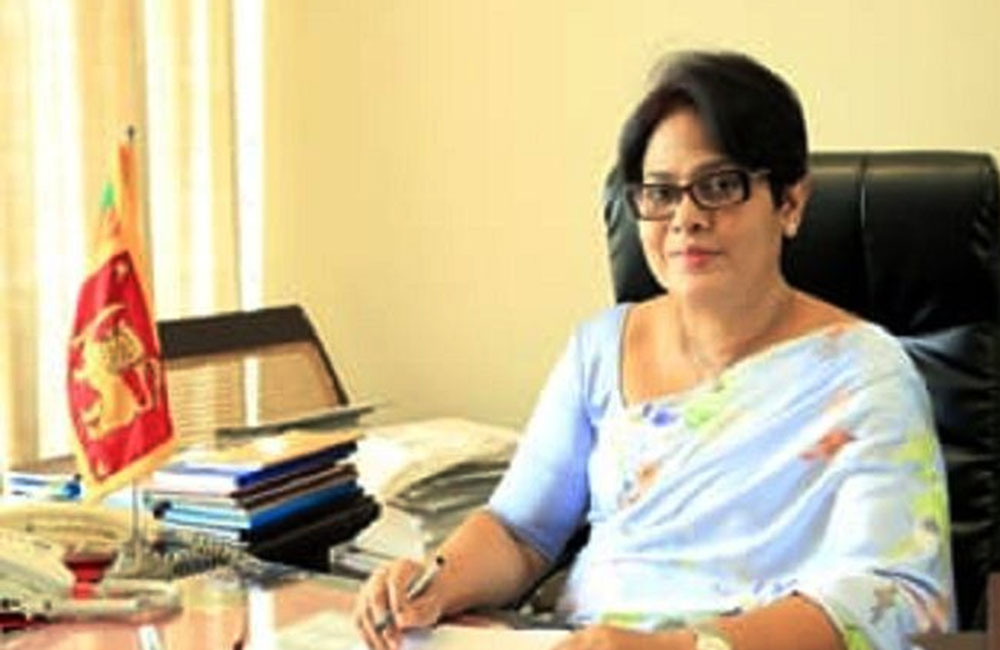
Kushani Rohanadheera appointed as the new secretary-general of parliament
President Ranil Wickremesinghe has appointed K.A. Rohanadheera to the position of Parliamentary Secretary General with effect from May 23, with the approval of the constitutional council.
Mrs. Rohanadheera is the current chief-of-staff and deputy secretary-general of parliament.
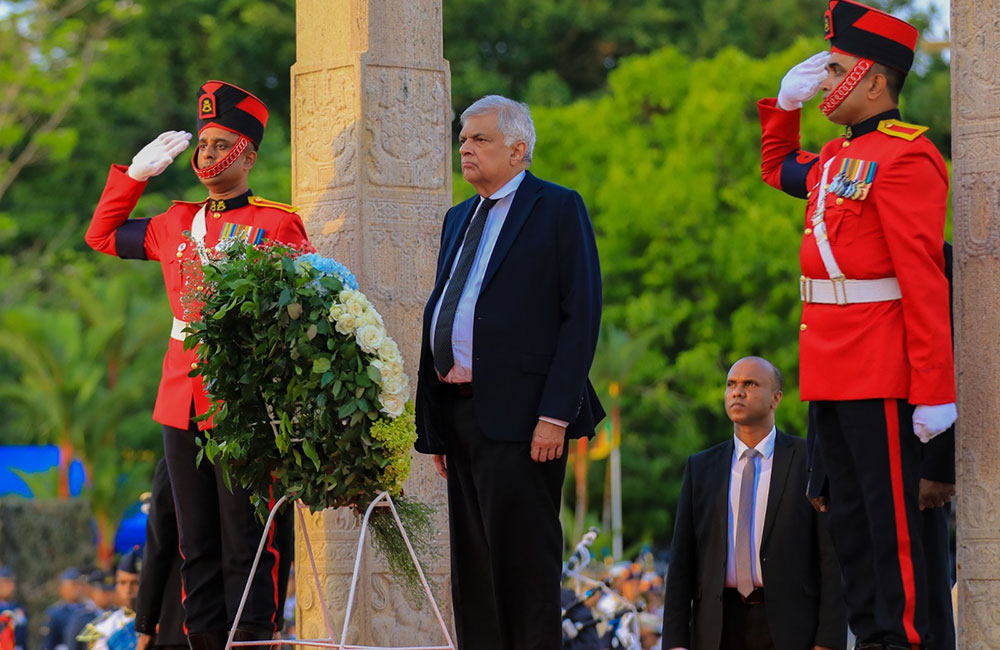
14th National War Heroes Commemoration held in Colombo
14th National War Heroes Commemoration held under patronage of President, Prime Minister
The National War Heroes Commemoration Ceremony took place today (19) at the Battaramulla War Heroes Memorial, under the patronage of the Commander-in-Chief of the Armed Forces President Ranil Wickremesinghe and Prime Minister Dinesh Gunawardena.
This year marks the 14th anniversary of the victory over LTTE terrorism that lasted for three decades. A total of 28,619 heroes from the Army, Air Force, Navy, Police, and Civil Security Department (CSD) sacrificed their lives for the freedom of the motherland, while over twenty-seven thousand war heroes were rendered disabled. The ceremony was a proud expression of the nation’s gratitude towards these brave individuals.
The ceremony began with the playing of the National Anthem, followed by a two-minute silence observed by the President, the Prime Minister, and others in honour of the fallen war heroes.
The event commenced with religious observances and a special war drumming performance,paying tribute to the courageous soldiers from the Army, Air Force, Navy, Police, and CSD who sacrificed their lives to protect the country’s sovereignty and territorial integrity.
The commemoration ceremony was organised by the Ranaviru Seva Authority.
https://english.newstube.lk/news?start=2940#sigProId701765be19
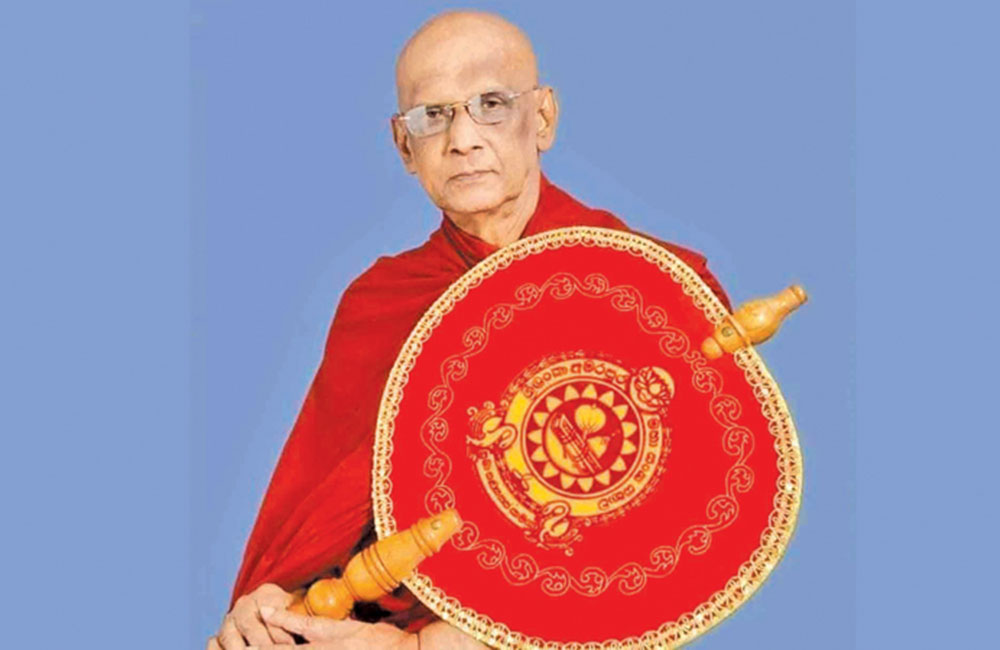
Chief Incumbent of Amarapura Maha Nikaya passed away
he Chief Prelate of the Amarapura Maha Nikaya, Most Venerable Dodampahala Chandrasiri Thero has passed away at the age of 84, while receiving treatment at a hospital in Colombo.
Succeeding the late Most Venerable Aggamahapandita Kotugoda Dhammavasa Mahanayaka Thero, Most Ven. Dodampahala Chandrasiri Mahanayake Thero was appointed as the Chief Prelate of the Amarapura Maha Nikaya on July 20, 2021.
The Mahanayaka Thero was born on December 20, 1939, at Dodampahala in the Southern Province and his parents were Ediriweera Patabandige Saranelis Silva, and Edirisuriya Patabandige Misinona.
After receiving his early childhood education from Dodampahala Central High School, the Thero entered the monkhood at the age of 11 at Walukarama monastery, Kudawella, and received his early monastic education at Wiraba Pirivena in Matara and at Vidyaloka Pirivena in Galle.
Most Ven. Dodampahala Chandrasiri Mahanayake Thero was appointed the Mahanayaka of the Kalyanivamsa chapter in 2013 prior to which he served as the deputy Maha Nayaka Thero and Nayaka Thero in charge of legal affairs of that chapter.
The Venerable Maha Thero has also served as the deputy president and the President of the Amarapura Maha Sangha Sabha representing all 22 fraternities of the Amarapura Chapter.
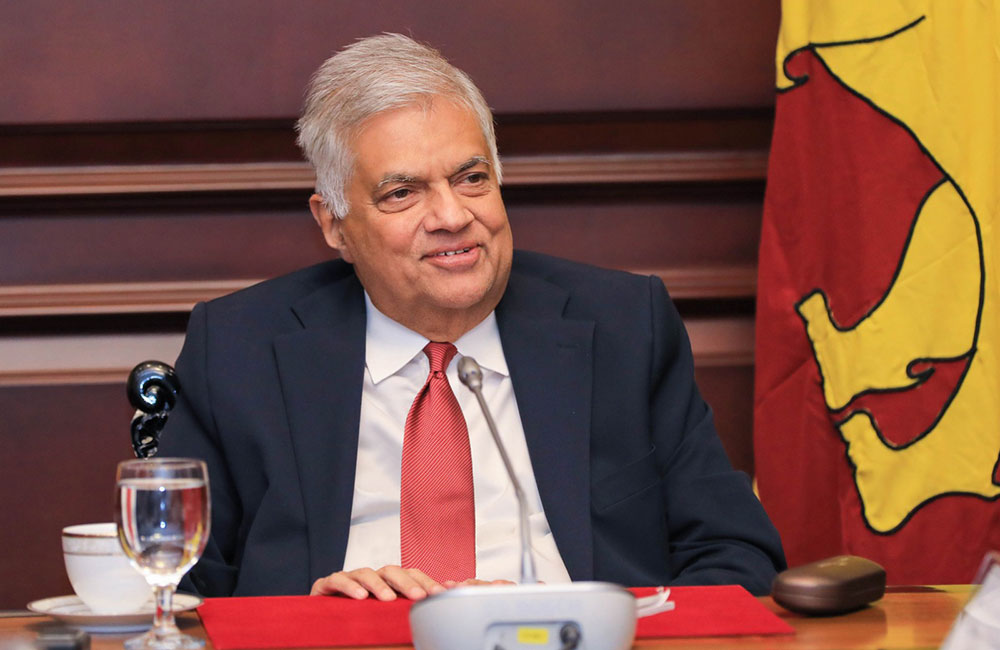
University lecturers’ demands to be considered after economy stabilizes
President Ranil Wickremesinghe says the government will be able to consider the privileges including financial concessions sought by the university lecturers, after the domestic debt restructuring program is successfully completed by September and the country’s economy is stabilized.
His remarks came during the meeting with the Federation of the University Teachers’ Association (FUTA) at the Presidential Secretariat this evening (May 18).
Academic staff representatives from all state universities were in attendance for this meeting during which a wide range of topics including the issues faced by the lecturers, the possible solutions for these problems and how to maintain the university system in the prevailing economic downturn were taken up for discussion at length.
The President also instructed the authorities to submit a cabinet memorandum regarding filling the necessary vacancies in the university system.
The university lectures emphasized that the existing educational facilities are insufficient compared to the number of students that enrol in the universities annually.
The focus was on improving the facilities of the university system while maintaining the current financial allocation restrictions, and President Wickremesinghe advised to pay more attention to the develop the facilities of medical, engineering and science faculties.
The President further directed the authorities to consult with the Attorney General and reach a decision on the possibility of re-granting the research allowance of the currently suspended university lecturers.
Attention was also drawn here on the need to get appropriate advice to suit the current world in decision-making and improving educational reforms regarding the country’s university education.
Minister of Education Susil Premjayanth, President’s Secretary Saman Ekanayake, President’s Senior Adviser on Economic Affairs Dr. R.H.S. Samaratunga, Secretary of the Ministry of Education Nihal Ranasinghe, Chairman of the University Grants Commission Senior Professor Sampath Amaratunga and the heads of line institutions of the government including officials of the Ministry of Finance also attended this discussion.
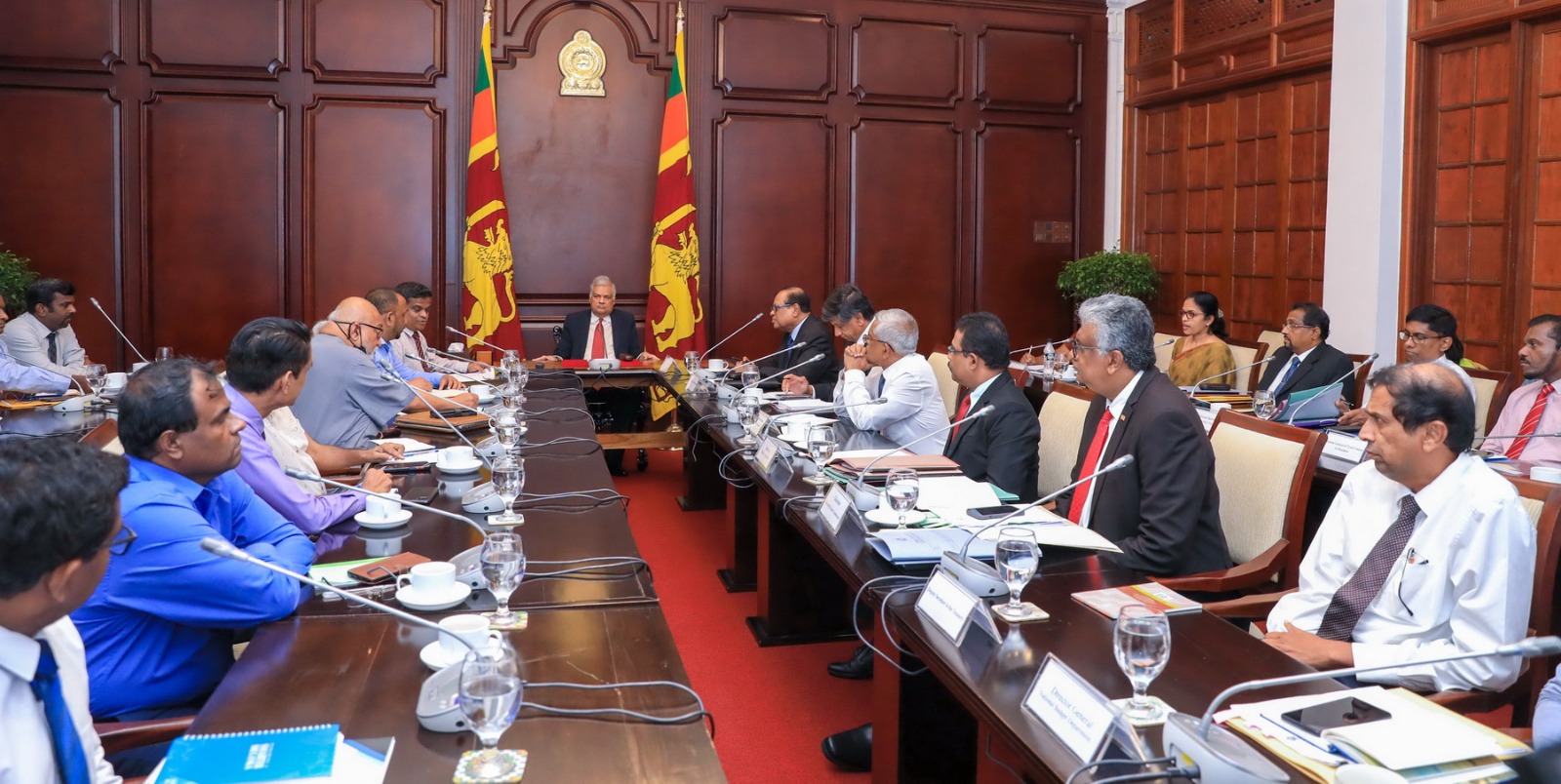
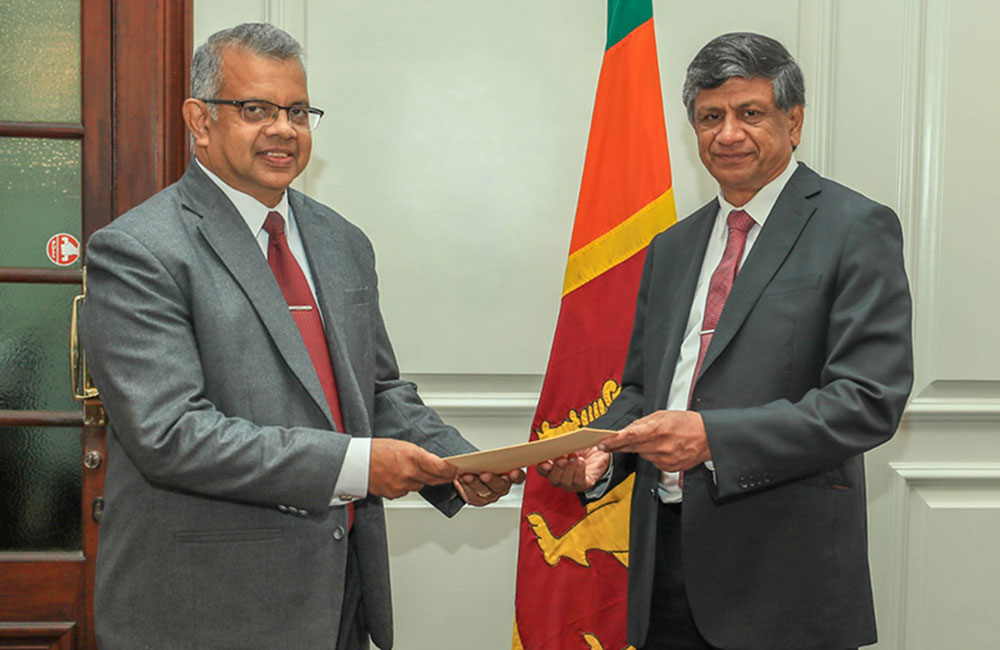
New chairman and members appointed to National Police Commission
President Ranil Wickremesinghe has appointed a new chairman and members to the National Police Commission (NPC), the President's Media Division said.
Accordingly, retired High Court Judge Lalith Ekanayake has been appointed as Chairman of the NPC.
Other members of the Commission are D.K. Renuka Ekanayake, Sarath Gamini de Silva, Dilshan Kapila Jayasuriya and Kanapathipillai Karunaharan.
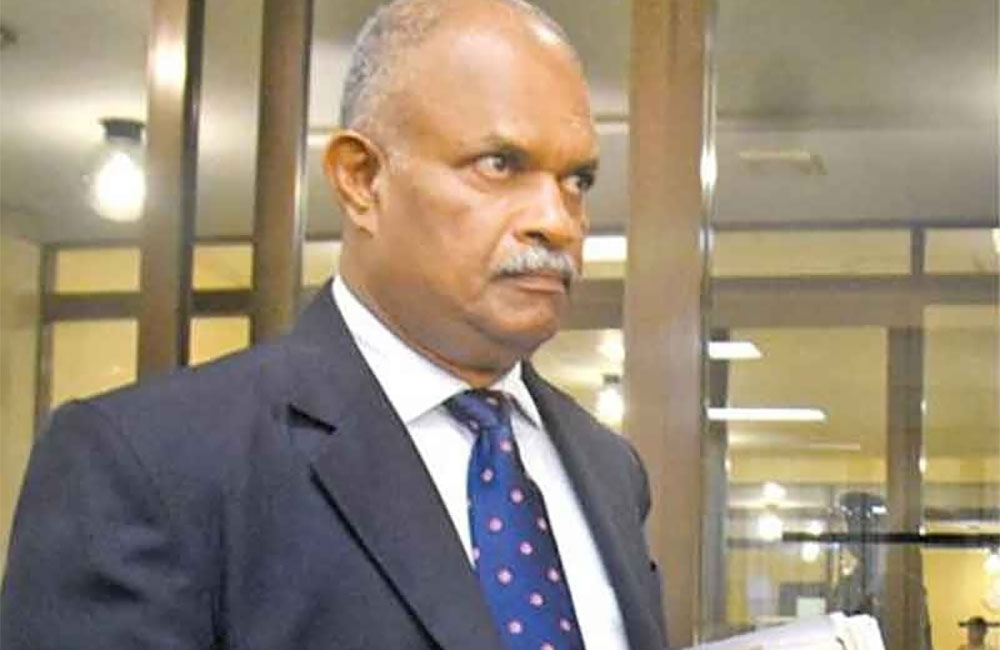
Shani Abeysekera is given sufficient protection - AG tells court
The Attorney General today (May 18) told the Court of Appeal that sufficient protection is provided to former Director of Criminal Investigation Department (CID) Shani Abeysekera.
Additional Solicitor General (ASG) Rohantha Abeysuriya conveyed this when the petition seeking protection filed by the former CID chief was called before the Appeals Court judge bench.
Appeals Court president Nissanka Bandula Karunaratne and Justice A. Marikkar sat for the hearing.
ASG Abeysuriya also mentioned that additional security officers and motorcycles too have been provided to Abeysekera.
Appearing on behalf of the former CID chief, President’s Counsel Upul Jayasuriya said his client intends to present submissions against the respondents in the petition over contempt of court for failing to comply with the order issued by the National Authority for Protection of Victims of Crime & Witnesses.
Thereby, the former CID chief was allowed to submit a revised petition on June 28, 2023.

Sri Lanka removes three provincial governors
The President's Media Division announced that the President has removed the governors of the Northern, Eastern, and North Western Provinces.
It was recently reported that the President's Office had requested the governors of the Sabaragamuwa, Uva, Northern, Easter, North-Western, and Western Provinces to step down.
However, the governors in response said that as no official communication was delivered to them, they would continue to function as governors.
On Monday (15) evening, the President had taken measures to remove Northern Province Governor Jeevan Thiagarajah, Eastern Province Governor Anuradha Yahampath, and North-Western Province Governor Admiral of the Fleet Wasantha Karannagoda.
The President's Media Division said the new governors will be appointed on Wednesday (17).

Brazil donates a consignment of medical supplies to Sri Lanka
The Federative Republic of Brazil through the Brazilian Cooperation Agency (ABC) donated to Sri Lanka a consignment of medical supplies including 10, 000 vials of regular human insulin and 08 million polypropylene tips.
State Minister of Foreign Affairs Tharaka Balasuriya received the donation of medical supplies from Brazilian Ambassador to Sri Lanka Sergio Luiz Canaes at the Ministry of Foreign Affairs in Colombo on 17 May 2023.
Highlighting the longstanding friendly relations between Sri Lanka and Brazil, State Minister of Foreign Affairs expressed appreciation for this goodwill gesture by the Government of Brazil.
Director General of the Ministry of Foreign Affairs O.L. Ameerajwad and other officials participated. The Embassy of Sri Lanka in Brazil coordinated the donation.
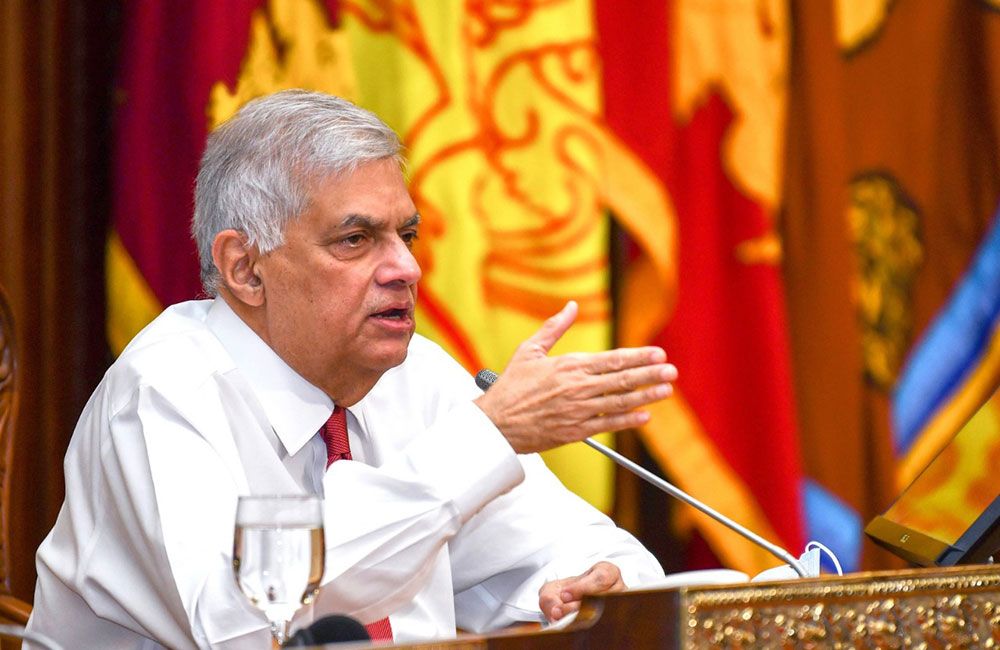
Kalutara sexual abuse incidents : Order from President
President Ranil Wickremesinghe has ordered strict legislation to prevent child abuse in Sri Lanka, the President’s Media Division (PMD) reported.
According to the PMD, the President emphasized the urgency of combating child abuse perpetrated by teachers, elders, and various segments of society.
The President highlighted the importance of such measures pointing out the recent incidents of abuse, including the death of a 16-year-old girl and the abuse of 16 children by a tuition teacher, both reported from the Kalutara area.
President Wickremesinghe also called for amendments to be made to existing legislation, underscoring the importance of careful consideration during the process.
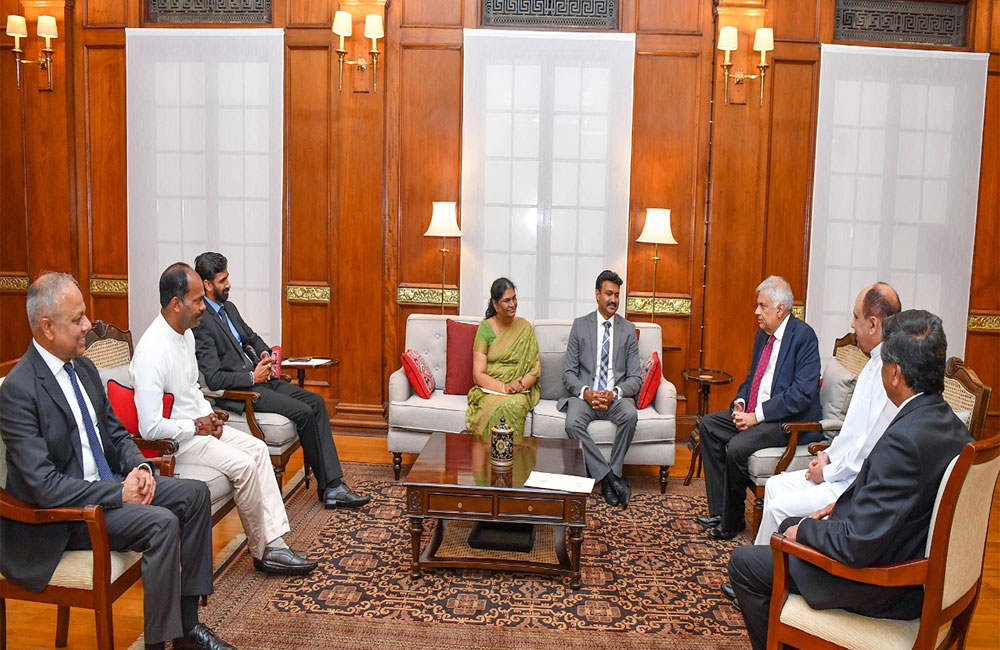
Three new provincial governors sworn in
New governors have been appointed for three provinces, the President’s Media Division (PMD) says.
Thereby, the following governors were sworn in before President Ranil Wickremesinghe at the Presidential Secretariat this morning (May 17):
• Lakshman Yapa Abeywardena – North-western Province
• P.S.M. Charles – Northern Province
• Senthil Thondaman – Eastern Province
The new appointments were made after the governors of the Eastern, Northern and North-western provinces were removed by the Head of State on Monday (May 15).
https://english.newstube.lk/news?start=2940#sigProIdd41c835e54

Cabinet calls for observations on proposal to legalize cannabis
The cabinet has called for observations on a paper it has received for the legalization of cannabis for export and as a medicine.
Once the legal draftsman prepares the related bill, it will be approved by the ministers and presented to parliament.
The cabinet paper proposes annual licentiates chosen by the Ayurvedic Drugs Corporation by calling applications to start the cultivation of cannabis on a large-scale.
After calls by state minister Diana Gamage to legalize cannabis, the president proposed through his budget to appoint an experts committee to look into its cultivation for export purposes only.
In medicine, cannabis is recommended for use as a painkiller and in the treatment of arthritis, cancer, Alzheimer’s disease, Parkinson’s disease, epilepsy and other neurological disorders.
Page 246 of 658
